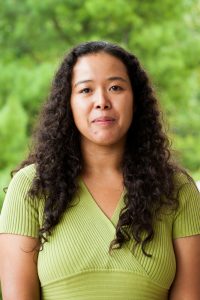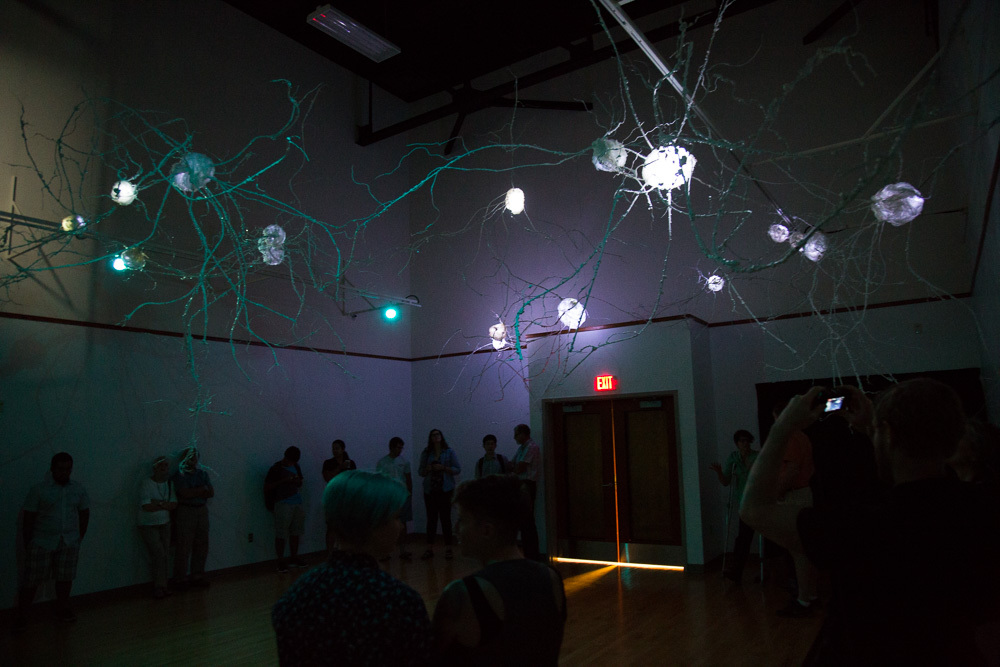The Margaret Martin Gehman Gallery at Eastern Mennonite University opens the 2017-18 academic year with a show by Anna Westfall, assistant professor of visual and communication arts.

Westfall’s statement for the installation, titled “Searching the Unseen,” includes the following description: “organic steel sculptures tangling like roots or unseen bursts of energy, and plastic and silicone curling like membranous surfaces of microscopic images speak to the phenomena of repeating systems found in the macro to the micro. The light pulsing with the sounds from cosmic background radiation, heartbeats in utero, and waves of resonating sound from percussion instruments, hopefully will stir a response on a visceral level.”
Westfall earned an MFA from the University of New Mexico and a BFA from James Madison University. She is a multi-disciplinary artist whose work often explores the complex relationship between memories, genetics, cycles in nature and the larger system of culture that inform identity.
Westfall has exhibited her work in Virginia, New Mexico, Georgia, Washington D.C., and Massachusetts.
From the artist’s statement
“Searching the Unseen” is an installation that explores the search for understanding which often leads to complexity and ambiguity rather that an expected clarity. Westfall borrows from recognizable images in both the microcosm and macrocosm, looking at the concept of dark matter and energy to microscopic views of cells such as neurons within our own bodies to speak to the search and ever expanding perspective science has provided. Often intriguing yet disquieting, knowledge gained continues to bring focus to our lack of understanding.
Specifically, the theories regarding dark matter and energy prompt unexpected questions. If we have focused most of human history on the visible 5% of known space, missing the other 95% of darkness beyond our notice, what truths have we been blinded to by the blazing matter filling our visual frame? Additionally, as scientists map neural connections in simple organisms as a way to understand behaviors in a more complex brain, I began to wonder how these scientific advancements will challenge our definition of self, identity, and what it means to be human.
The gallery is open Monday through Friday from 7:30 a.m.-4 p.m.
